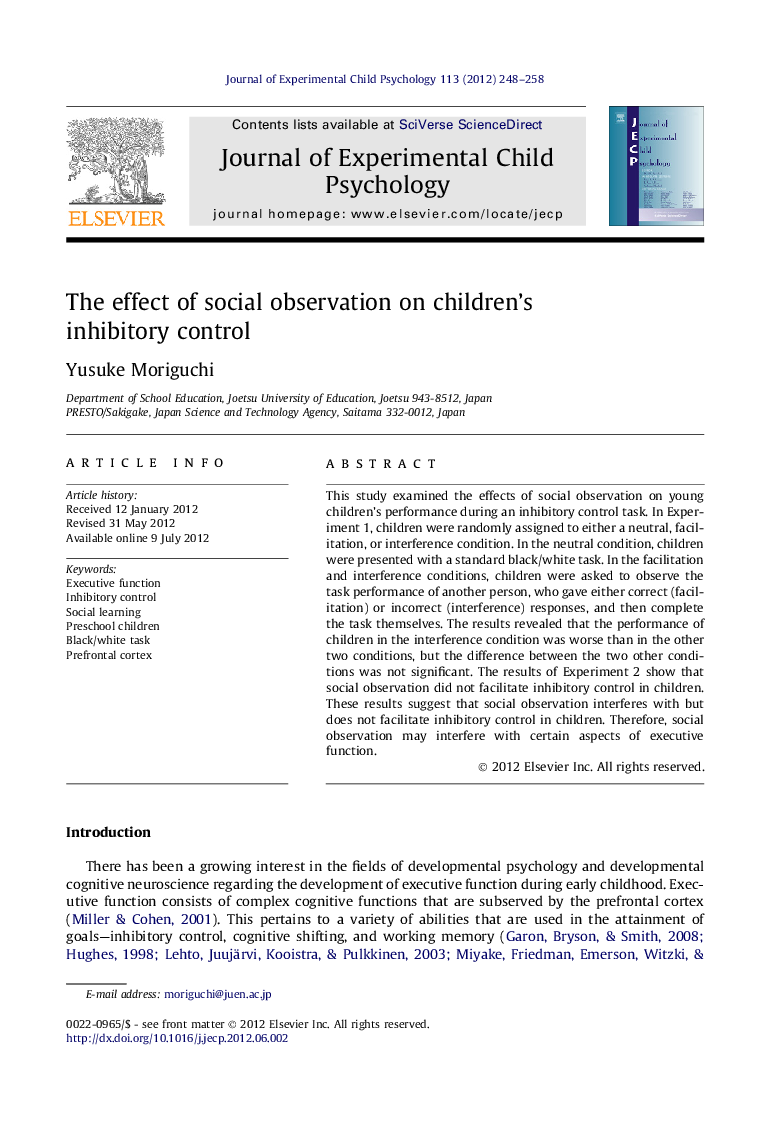| Article ID | Journal | Published Year | Pages | File Type |
|---|---|---|---|---|
| 918295 | Journal of Experimental Child Psychology | 2012 | 11 Pages |
This study examined the effects of social observation on young children’s performance during an inhibitory control task. In Experiment 1, children were randomly assigned to either a neutral, facilitation, or interference condition. In the neutral condition, children were presented with a standard black/white task. In the facilitation and interference conditions, children were asked to observe the task performance of another person, who gave either correct (facilitation) or incorrect (interference) responses, and then complete the task themselves. The results revealed that the performance of children in the interference condition was worse than in the other two conditions, but the difference between the two other conditions was not significant. The results of Experiment 2 show that social observation did not facilitate inhibitory control in children. These results suggest that social observation interferes with but does not facilitate inhibitory control in children. Therefore, social observation may interfere with certain aspects of executive function.
► This study examined whether and how social observation affects young children’s performance in an inhibitory control task. ► Observation of another person’s actions interfered with children’s inhibitory control. ► Social observation did not facilitate or improve children’s inhibitory control.
